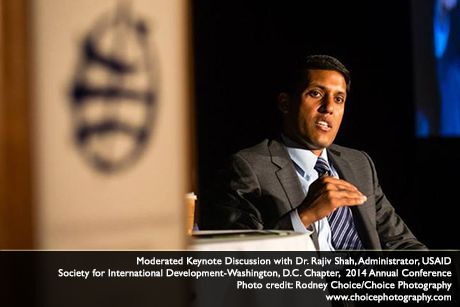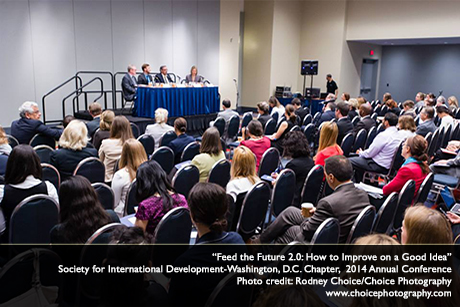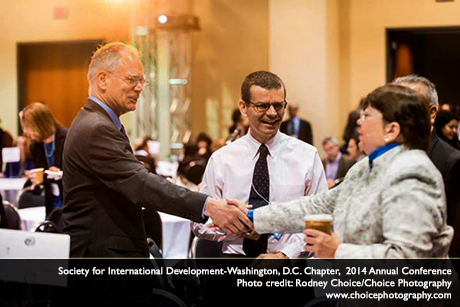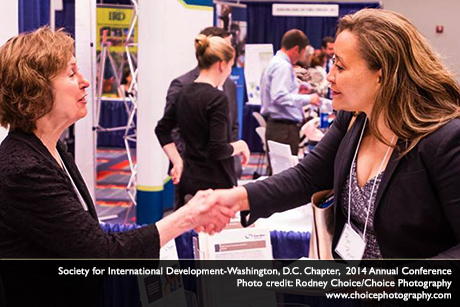The Resilience Agenda: Making Room for Adaptation
Ashleigh Mullinax is the Manager of the Knowledge Management Portfolio with the Feed the Future Knowledge-Driven Agricultural Development (KDAD) project. She attended the Society for International Development's annual conference as a participant and shares her insights on the connection between resilience and the collaborating, learning, and adapting (CLA) approach.
On May 20, 2014, a large number of international development stakeholders including donors, implementing partners, and the private sector convened for the Society for International Development’s (Washington DC chapter) annual conference. The conference schedule was full and featured plenaries and breakout sessions on a wide range of topics including collaboration in scaling innovations in the science and technology arena, land rights and or resources, sustainable water and sanitation rights, ending poverty, and resilience (for the full agenda, please visit here). All breakout sessions focused on themes from the eight Sustainable Development Goals (SDGs) that are currently being developed by United Nations Member States as a major outcome of the United Nations Conference on Sustainable Development (Rio+20) held in June 2012.
I attended the morning breakout session on resilience (official title: The Resilience Agenda: Healthy Ferment in the Relief and Development Communities, or Are We Caught in a Chinese Finger Trap?) moderated by a senior policy advisor at World Vision and featuring representatives from USAID, the United States Air Force, and the Netherlands Development Organisation (SNV). One of the most salient themes of the session for me was that resilience was being discussed as not only a technical problem that should be addressed with technical expertise and assistance (access to finance, improved agricultural productivity, etc.) but that it also needed to be viewed as an adaptive issue. In other words, resilience should be more about helping vulnerable populations learn how to respond and adapt to inevitable shocks that will occur than fixing the outcomes of the shock itself. This seems obvious but is something that is currently undergoing a huge shift among many donor agencies, including USAID. This will require (and is already happening) better collaboration between the historically siloed humanitarian and development arms of development as well as the recognition that shocks will inevitably happen.
The use of the word “adaptive” brought to mind the Collaborating, Learning, and Adapting (CLA) model that is currently being integrated into USAID programming worldwide. CLA ties in nicely with the current resilience approach since it focuses on learning along the way and adapting (as a donor, as an implementing partner, and as a beneficiary) as the need arises. If you put this into the context of resilience, it might look something like this: collaboration among key stakeholders to build the capacity of vulnerable populations well in advance of shocks, continuous discussion and shared learning about what is proving to be effective in building capacity among the vulnerable population, and then, adapting the programming that’s already in place to effectively respond to shocks. This type of programming would shift from reactive to adaptive and would occur continuously through a Program’s implementation. This shift in approach seems to be occurring in a number of different areas of development, and it’s exciting to see that concepts like resilience and learning are really not that different at all.
To learn more about the Society for International Development’s (Washington DC chapter) 2014 annual conference, click here.
Event Resources
View "The Resilience Agenda" session below. To see more videos from the conference, visit the SID-Washington YouTube Channel.
View images from the event below. To see more, visit the SID-Washington 2014 Annual Conference Facebook page.







